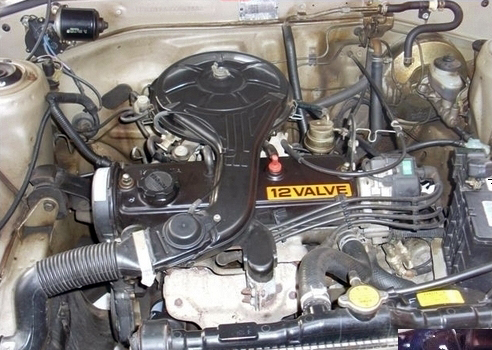Engine Acquiring Expert Tips on Selecting the Right Engine for Your Details Requirements
Picking the right engine for your specific requirements entails a complex interplay of elements that go beyond plain horse power numbers. By diving right into the ins and outs of power versus effectiveness, reviewing fuel rankings, and budgeting for long-term expenses, one can absolutely maximize their engine choice.
Power Vs. Performance: Finding the Equilibrium

When picking an engine, it is essential to strike an equilibrium between power and efficiency to meet your details requirements successfully. Power refers to the engine's ability to generate energy for propulsion, establishing factors like velocity, pulling capability, and overall performance (Toyota Tazz Engine For Sale). On the various other hand, performance associates with exactly how well the engine utilizes gas to produce power, impacting variables such as fuel economy and ecological friendliness
Achieving the ideal balance in between power and efficiency is essential due to the fact that an engine that is too effective may take in excessive gas, leading to greater operating expense and unneeded pressure on the environment. On the other hand, an engine that prioritizes effectiveness over power may lead to slow-moving efficiency, particularly popular circumstances like towing heavy lots or driving uphill.
To make a notified decision, take into consideration elements such as your normal driving conditions, the designated use the car, and your individual preferences. By reviewing your needs and concerns, you can choose an engine that strikes the ideal balance between power and performance, making certain ideal efficiency while minimizing environmental influence and operating expense.
Comprehending Engine Dimension and Kind

Typical engine kinds consist of inline engines, V engines, and rotating engines, each with its special advantages and drawbacks. Understanding the interaction between engine dimension and kind is vital in selecting an engine that straightens with your certain requirements and concerns, whether it be power, effectiveness, or a balance of both.
Consider Your Car's Requirements
If you are looking for an engine for a sturdy truck that will be made use of for towing, you will need a powerful engine with high torque capacities. On the various other hand, if you are selecting an engine for a compact cars and truck primarily utilized for city travelling, gas performance might be a more crucial aspect to take into consideration.

Reviewing Gas Performance Rankings
Examining gas performance rankings is an essential aspect of selecting the right engine for your automobile, making certain price savings and environmental sustainability. Fuel efficiency ratings, generally determined in miles per gallon (MPG) for gas engines or kilowatt-hours per 100 miles (kWh/100 miles) for electric engines, indicate just how much a car can travel on a details quantity of gas or power. Greater MPG or lower kWh/100 miles worths symbolize much more efficient engines, converting to lowered you could try these out fuel costs and reduced carbon discharges.
Furthermore, compare different engine choices within the same automobile course to identify the most affordable choice. Aspects such as engine dimension, weight, aerodynamics, and crossbreed or electrical capabilities can all affect gas effectiveness.
Budgeting for Long-Term Prices
Strategically preparing for long-lasting costs is critical when selecting an engine, ensuring financial sustainability over the vehicle's life-span. While the first acquisition cost of an engine is a considerable element, it is important to think about the long-term prices linked with upkeep, repair work, and fuel consumption.
Additionally, looking into the accessibility and price of replacement components for the selected engine is crucial in budget preparation. By thoroughly budgeting for these lasting expenditures and factoring them into the decision-making procedure, individuals can select an engine that not only fulfills their instant requirements however additionally stays economical throughout its life expectancy.
Verdict
Finally, selecting the right engine for your specific demands calls for balancing power and performance, recognizing engine size and type, considering your vehicle's needs, examining fuel efficiency ratings, and budgeting for long-lasting costs. By meticulously taking into consideration these variables, you can make certain that see here you choose an engine that satisfies your demands and supplies optimum efficiency for your vehicle.
To even more fine-tune the option process of an engine that strikes the optimum equilibrium in between power and performance, it is crucial to delve right into the ins and outs of understanding engine dimension and kind. Engine size refers to the total volume of air and fuel that can be pressed with the engine cyndrical tubes. Usual engine kinds consist of inline engines, V engines, and rotary engines, each with its unique advantages and drawbacks. Recognizing the interaction in between engine size and type is vital in picking an engine that straightens with your details demands and top priorities, whether it be power, effectiveness, or an equilibrium of both.
Gas performance ratings, typically measured in miles per gallon (MPG) for fuel engines or kilowatt-hours per 100 miles (kWh/100 miles) for electrical engines, show how far a car can travel on a read the article particular amount of fuel or electrical energy.